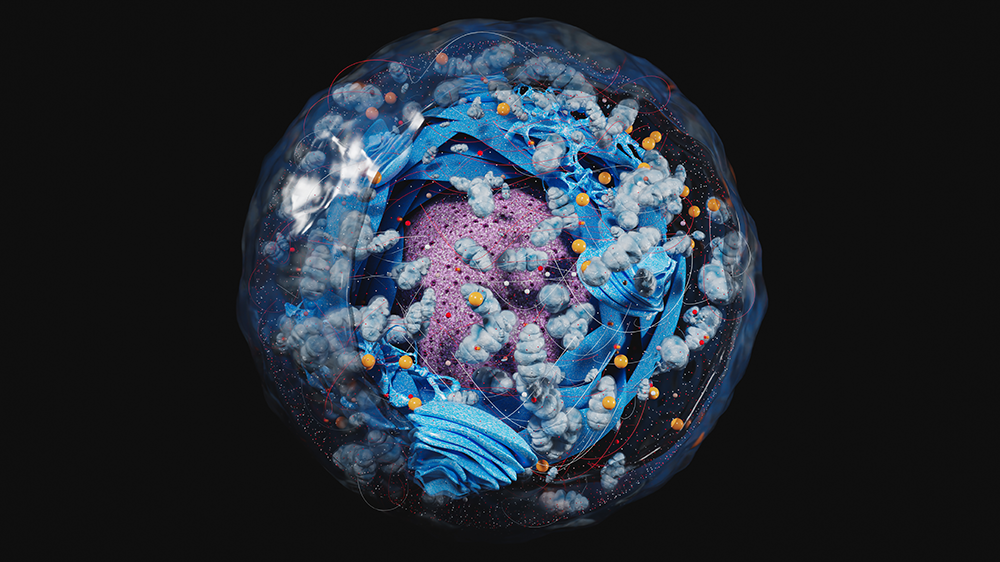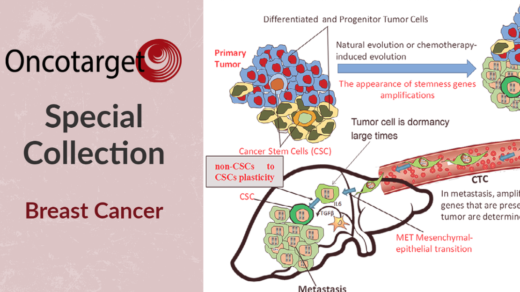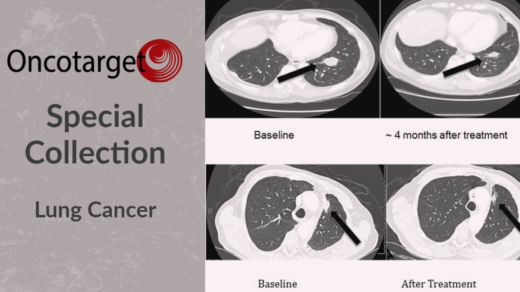Researchers from The Jikei University School of Medicine published a recent editorial perspective in Oncotarget, entitled, “Leakage? or Secretion? unconventional protein secretion in cancer.”

The Trending With Impact series highlights Oncotarget publications attracting higher visibility among readers around the world online, in the news, and on social media—beyond normal readership levels. Look for future science news about the latest trending publications here, and at Oncotarget.com.
—
Conventional protein secretion is fairly well understood in this day and age. Proteins that are secreted through the classical, secretory vesicle-related pathway contain a signal peptide that guides them to the endoplasmic reticulum (ER), where they are further processed and transported to the Golgi apparatus. From there, the Golgi apparatus modifies, sorts and packages proteins for transport to their final destinations within the cell or for secretion outside of the cell.
However, in recent years, it has become clear that not all secreted proteins follow this conventional pathway. Instead, some proteins are secreted through unconventional pathways that do not require a signal peptide or the involvement of the ER or Golgi apparatus. In a recent editorial perspective published in Oncotarget on February 20, 2023, “Leakage? or Secretion? unconventional protein secretion in cancer,” researchers Kohji Yamada and Kiyotsugu Yoshida from The Jikei University School of Medicine in Tokyo, Japan, discuss unconventional protein secretion (UPS) and its significance in the progression of cancer.
“In contrast, the secretion of proteins that do not code for signal peptides may occur via two or more mechanisms, often collectively referred to as unconventional protein secretion (UPS).”
UPS in Cancer
The mechanism of action of UPS in cancer cells is still unclear, however, UPS may be carried out through multiple mechanisms. One such mechanism is the lysosome-mediated secretion pathway, in which proteins are secreted through lysosome organelles that break down and recycle cellular waste. Another mechanism is the exosome-mediated secretion pathway, in which proteins are packaged into small vesicles called exosomes and released from the cell.
In their editorial perspective, Yamada and Yoshida focus on the unconventional secretion of proteins in cancer cells. They note that these unconventional pathways have been implicated in the progression of various types of cancer, especially in liver cancers. The authors quickly began to discuss the question in the title of their paper: leakage or secretion? Since cancer cells are often surviving in harsh external environments, they tend to undergo damage to their cellular membranes. This makes it difficult to identify whether the proteins found in the extracellular environment have been leaked or secreted from the cell.
“Particularly, in liver cancer, cytosolic proteins are secreted actively, but not just leaked. In our experiments with liver cancer cell lines, we demonstrated that proliferating cells under normal culture conditions release importin α1 and PKCδ [2, 3].”
The researchers then delve into the different proteins secreted through UPS and their role in cancer. They note that cancer cells often secrete proteins that promote tumor growth and metastasis through these unconventional pathways. For example, the lysosome-mediated secretion of the protein cathepsin B has been shown to promote cancer cell invasion and metastasis. Exosome-mediated secretion of various proteins, including growth factors and cytokines, has been linked to tumor growth and immune evasion.
Conclusion
Overall, the editorial perspective by Yamada and Yoshida provides valuable insight into the significance of unconventional protein secretion in cancer. While further research is needed in order to understand UPS, this editorial perspective highlights its potential as a therapeutic target. The authors emphasize the importance of continuing research into this area of cancer biology.
“In conclusion, we and other researchers have accumulated a series of evidences on UPS and its biological significance in cancer. However, the mechanism of action of UPS in cancer cells remains unclear. How cytosolic proteins localized to the ER via E-Syt1 migrate into vesicles for secretion or whether their secretory mechanisms involve other organelles, including the Golgi apparatus, autophagosomes, or lysosomes, remains unclear. In the future, if the route of UPS that is centered on E-Syt1 is elucidated, this will presumably lead to not only a basic understanding of liver cancer but also to the development of diagnostic and therapeutic strategies.”
Click here to read the full editorial perspective published in Oncotarget.
ONCOTARGET VIDEOS: YouTube | LabTube | Oncotarget.com
—
Oncotarget is an open-access, peer-reviewed journal that has published primarily oncology-focused research papers since 2010. These papers are available to readers (at no cost and free of subscription barriers) in a continuous publishing format at Oncotarget.com. Oncotarget is indexed/archived on MEDLINE / PMC / PubMed.
For media inquiries, please contact media@impactjournals.com.



